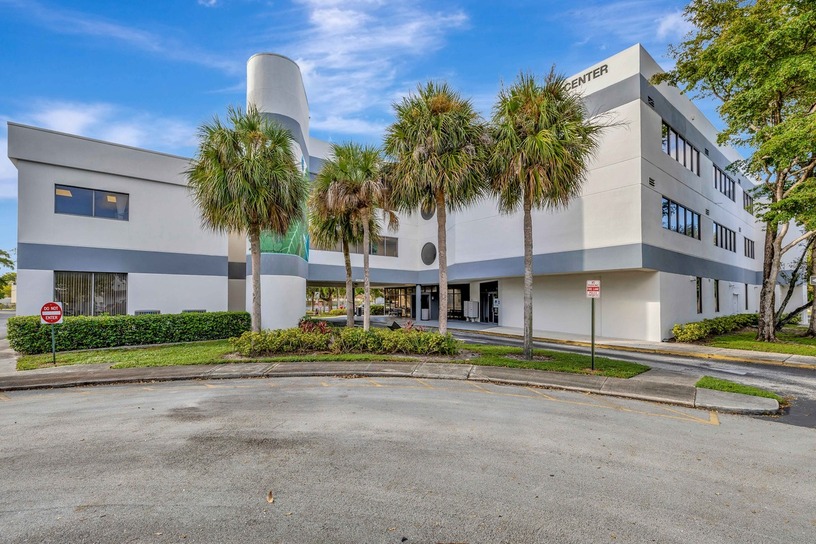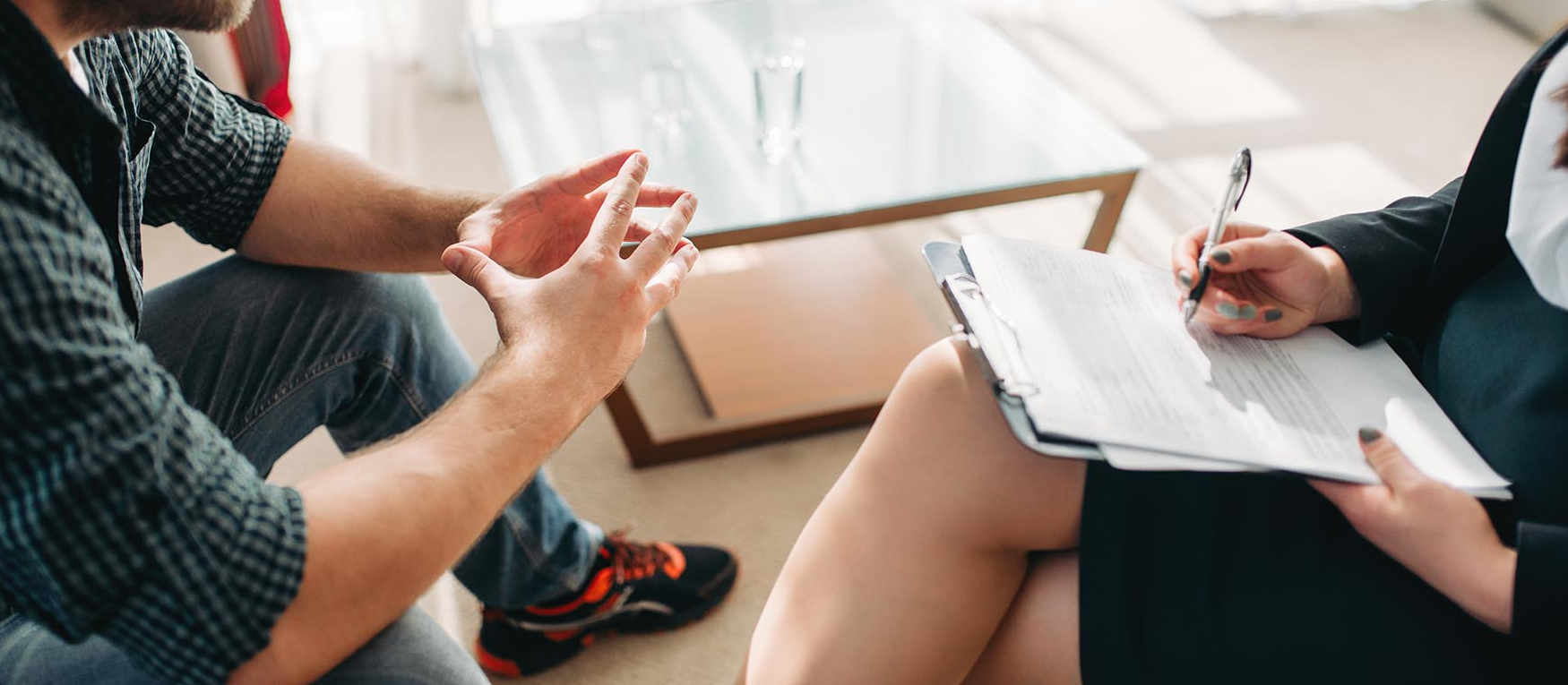The Sylvia Brafman Mental Health Center provides specialized treatment for adults struggling with anxiety disorders at our accredited healthcare facility in South Florida. We offer accommodations for out-of-state patients and accept many private insurance plans. This page explores the use of Zoloft for anxiety disorders. For immediate support, call below.

Zoloft (sertraline) for Anxiety Disorder Treatment in Fort Lauderdale, Florida
What is Zoloft (sertraline)?
Zoloft (sertraline) is a Selective Serotonin Reuptake Inhibitor (SSRI). It is commonly used to treat a variety of anxiety disorders, such as Obsessive-Compulsive Disorder (OCD) and panic disorder. By increasing serotonin levels in the brain, Zoloft helps regulate mood, reduce the severity of symptoms, and improve overall emotional well-being.
Doctors often prescribe the anxiety medication Zoloft due to its effectiveness and relatively mild side effect profile. While many patients experience significant symptom relief, some may encounter side effects such as nausea or changes in sleep habits. It typically takes six to eight weeks for Zoloft to reach full effectiveness, and dosage adjustments may be needed under medical supervision to achieve the best results.

Types of Anxiety Disorders Zoloft is Used For
Several subtypes of anxiety exist with variations in related symptoms. While sertraline for anxiety is effective, it may not work for everyone, as each individual responds differently to pharmacological treatments. Below is only a brief list of a few of the common anxiety subtypes. A mental health treatment center, like Sylvia Brafman, can determine the best treatment for your symptoms.

Alternative Therapy and Treatment to Zoloft for Anxiety
Counseling and therapy are effective alternative treatments for managing anxiety symptoms and finding long-term relief. Anxiety disorders are highly treatable, and many people discover that therapy and holistic treatments provide the tools and support they need to enhance their well-being. There are various therapy and treatment options for anxiety, and we’ve listed a few options below.

Does Zoloft Help with Anxiety?
The best SSRIs for anxiety, like Zoloft, raise and regulate serotonin levels in the brain. Serotonin is a chemical that carries signals between brain cells and plays a crucial role in regulating emotions and sleep patterns. Once serotonin sends a message, the brain reabsorbs it in a process called reuptake. SSRIs block reuptake, leaving more serotonin available to carry signals.
While low serotonin is not the sole cause of anxiety symptoms, depression, and similar mental health conditions, increasing serotonin levels can improve symptoms. Sertraline for anxiety can make you feel better and increase the effectiveness of other treatments, like Cognitive-Behavioral Therapy (CBT).
If you have additional questions, such as how Zoloft works for anxiety treatment or how effective is Zoloft for anxiety symptoms, contact our patient advocates for a free assessment today. We can help you navigate treatment plan options that best support you.
What Are the Doses of Zoloft (sertraline)?
Sertraline is most commonly prescribed in tablet form. It may take two to four weeks to notice benefits, and while mild side effects may occur initially, they usually fade quickly. Consistency is crucial, so don’t stop taking the medication even if side effects appear. Below is a breakdown of typical Zoloft dosage for anxiety treatment.
25 mg Zoloft: This is the minimum Zoloft starting dose for anxiety; it’s often used if you are new to the medication, as it allows your body to adjust with minimal side effects. It’s commonly prescribed for mild anxiety or depression.
50 mg Zoloft: This is the standard dose, usually adequate for most people dealing with moderate anxiety or depression. It may be increased depending on individual needs.
100 mg Zoloft: Typically used for more severe cases of anxiety or depression, 100mg can be an effective dose when lower doses are not enough. Two hundred milligrams of sertraline is the Zoloft maximum dose for anxiety treatment.
20 mg per mL Zoloft: This liquid form is helpful if you have trouble swallowing tablets or need a more adjustable dose. The liquid offers more flexibility for precise dosage adjustments.
Consult your healthcare provider if you don’t experience benefits within four to six weeks. They may recommend adjusting your dose or switching medications. Treatment usually continues for at least six months; longer courses may be suggested for recurring conditions, sometimes indefinitely.

Anxiety Treatment Center in Fort Lauderdale, Florida
Experiencing anxiety disorder symptoms can feel overwhelming, but you don’t have to go through it alone. The Sylvia Brafman Mental Health Center provides expert care in a holistic, supportive environment outside Fort Lauderdale. Our behavioral health center offers a range of evidence-based therapies and holistic alternatives for anxiety treatment, all customized to meet your specific needs.
Understanding health insurance details can be confusing, so we partner with numerous providers to simplify the process and reduce financial concerns. Call (877) 958-9212 to learn more about how we can support your journey toward healing, or visit our outpatient treatment center in person at 7710 NW 71st Ct, Tamarac, FL 33321. We are here to guide you every step of the way.

Does Zoloft Help with Depression and Anxiety?
Zoloft is commonly prescribed to treat both depression and anxiety. As a Selective Serotonin Reuptake Inhibitor (SSRI), it increases serotonin levels in the brain, which helps regulate mood and reduce excessive worry. Many individuals experience relief from symptoms, although the full effects may take a few weeks to be noticed.
Zoloft is often used for conditions like Generalized Anxiety Disorder (GAD), social anxiety disorder, panic disorder, and major depressive disorder. It helps reduce persistent feelings of sadness, worry, and fear. While it is effective for many, some individuals may experience mild side effects such as nausea or fatigue. It’s important to continue taking Zoloft as prescribed, and if there are no noticeable improvements after four to six weeks, your doctor may adjust the dosage or explore other treatment options.
How Long Does Zoloft Take to Work for Anxiety?
Zoloft does not work immediately, as it takes time for the medication to build up in your system and affect brain chemistry. The timeline for improvement depends on several factors, including the type of anxiety disorder being treated, your symptoms, and the prescribed dosage. Below is a general timeline to answer the question, “When does Zoloft start working for anxiety?”
First Few Days to Week 1: You may experience mild side effects, such as nausea or headaches, but these usually subside. Little to no anxiety symptom relief is expected during this time.
Weeks 2-4: Early improvements in sleep, energy levels, and mood may begin to appear. Anxiety and depressive symptoms may start to lessen.
Weeks 4-8: More significant reductions in anxiety and depression are often noticeable. Thought patterns and emotional responses may become more stable.
Beyond 8 Weeks: The full effects of Zoloft are typically achieved, with ongoing adjustments as needed for the best results.
The effectiveness of Zoloft varies for everyone, and factors like metabolism, co-occurring disorders, and consistency in taking the prescribed dose can impact how quickly it works. If there is no noticeable improvement after six to eight weeks, a doctor may adjust your dosage or explore alternative treatments. Regular follow-ups with a healthcare provider ensure the medication works effectively for your needs.
If you are asking yourself, “How effective is Zoloft for anxiety?” or want to understand how sertraline vs. other anxiety medications differ, call (877) 958-9212. Our knowledgeable patient advocates will guide you to the treatment that works best for you.
What Are the Side Effects of Zoloft (sertraline)?
Like any medication, Zoloft can cause side effects, though you may not experience them. Most side effects are mild and temporary as the body adjusts to the medication. However, some individuals may experience more persistent or uncomfortable effects. The list below includes some of the potential side effects but is not a complete list.
Gastrointestinal issues – nausea, diarrhea, or upset stomach
Sleep disturbances – insomnia or drowsiness
Changes in appetite – weight gain or loss
Sexual side effects – decreased libido or difficulty reaching orgasm
Dizziness or headaches – mild but usually temporary
In rare cases, Zoloft may cause more serious side effects, such as increased anxiety, agitation, or suicidal thoughts, especially when first starting the medication. It’s essential to communicate with your doctor if any severe or persistent symptoms occur. Adjusting the dosage or switching to another treatment option may help alleviate unwanted effects.
If you’re concerned about potential side effects, therapy could be a great alternative or complement to medication. Evidence-based treatments like Cognitive Behavioral Therapy (CBT) and mindfulness techniques can be highly effective in managing anxiety and depression without the risks associated with medication. Consulting a mental health professional can determine the best treatment plan for your needs.

Does Health Insurance Cover Zoloft for Anxiety in Florida?
Yes, many health insurance plans in Florida cover Zoloft for anxiety. Zoloft for Generalized Anxiety Disorder (GAD) and other subtypes, however, may be more complicated, as the medication is only FDA-approved for panic and social anxiety disorder. In some cases, you may be required to obtain prior authorization and medical justification when seeking coverage for Zoloft for anxiety.
Most plans offer prescription drug coverage that reduces the cost of medications commonly prescribed to manage anxiety. The level of coverage and out-of-pocket expenses may vary, so verifying your policy details is critical. In addition to medication, many insurance plans also cover therapy sessions, which can complement medication and offer a comprehensive approach to anxiety symptom management. If your plan covers medications like Zoloft and therapy services, combining these treatments can be highly effective.
Contact a specialty treatment center like Sylvia Brafman if you’re unsure about your coverage. Our patient advocates can help you understand your insurance benefits—call (877) 958-9212 today.
How Much Does Zoloft (sertraline) for Anxiety Cost in Florida?
The cost of sertraline for anxiety in Florida can vary based on the dosage, generic or brand name, and insurance coverage. The generic medication sertraline is usually more affordable, while brand-name drugs, such as Zoloft, may be more expensive, especially if insurance doesn’t cover the cost. Zoloft (sertraline) typically costs between $5 and $150 monthly for a 50mg tablet.
If you participate in an anxiety treatment program, the cost of medication, including Zoloft, may be included in the overall treatment package. The program may reduce or even eliminate these out-of-pocket expenses. Many rehabilitation centers, such as The Sylvia Brafman Mental Health Center, offer comprehensive care, including medication management, as part of their treatment programs. To understand your financial responsibility clearly, it’s always a good idea to confirm these details with the treatment center. Contact our patient advocates for anxiety medication cost estimates in Florida.
Anxiety Disorder Recovery Treatment Process
The treatment process for an anxiety disorder is a transformative journey, and understanding what to expect can motivate you to take the first steps. This process combines professional guidance, personal growth, and continuous support. Here’s an overview of the typical rehab admissions process and what a path to recovery may involve:
Initial Assessment and Diagnosis: A mental health professional will conduct a thorough assessment to identify your symptoms and understand the root causes of your anxiety. They will provide an accurate diagnosis through conversations and evaluations, forming the foundation for creating a tailored treatment plan.
Creating a Personalized Treatment Plan: Your treatment plan will be customized to meet your needs. Treatment may include a combination of therapy, medication, and self-care strategies designed to address your symptoms and promote long-term healing.
Psychotherapy (Talk Therapy): Therapy plays a central role in anxiety recovery. It provides a safe space to explore your emotions and thoughts. Approaches like Cognitive Behavioral Therapy (CBT), group therapy, and other methods challenge negative thought patterns, teach healthier coping strategies, and change how you respond to anxiety triggers.
Medication (If Needed): For some, medication is an integral part of managing anxiety, especially when symptoms are severe. Anxiety medications can clear mental space, allowing you to focus on other aspects of your recovery. Your healthcare provider will work with you to determine the proper medication and dosage.
Lifestyle and Behavioral Changes: Long-term recovery goes beyond therapy and medication. Lifestyle changes—eating well, exercising regularly, getting enough sleep, and practicing mindfulness—can significantly reduce anxiety. These healthy habits support emotional resilience and help you progress in your recovery.
Support Systems and Community: Connecting with others is crucial during recovery. Support from friends, family, or a professional group can provide reassurance and reduce feelings of isolation. Engaging with those who understand your experience reminds you that you’re not alone in your journey.
Ongoing Monitoring and Adjustments: Regular check-ins with your healthcare team to track your progress and make necessary adjustments to your treatment plan are part of an active recovery process. Adjusting medications, changing therapies, or trying new approaches ensures your treatment remains effective and aligned with your evolving needs.



